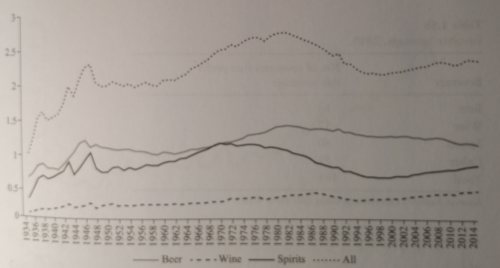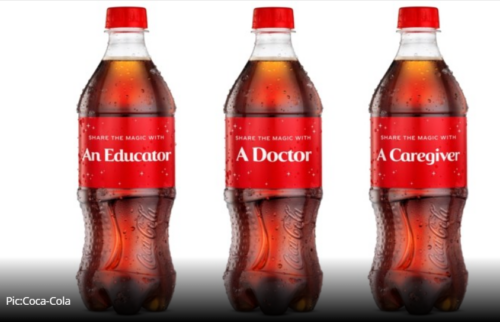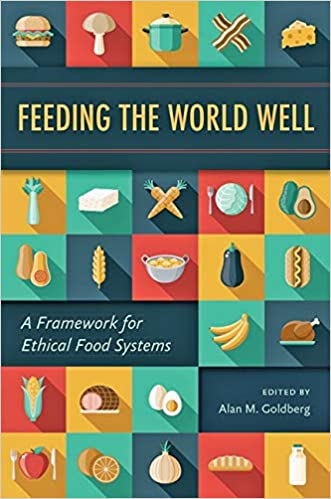Weekend reading (well, studying): Wine Economics
Stefano Castriota (Translated from the Italian by Judith Turnbull). Wine Economics. MIT Press, 2020.

Wine isn’t something that I pay a lot of attention to academically, so I had no idea there was a field of economics devoted to these products until MIT Press sent me this book. It reviews the literature on lots of issues I’ve never thought about:
- Why you pay more for some wines than others even when the cost of producction is the same.
- The role of expertise: can they really tell the difference between one wine and another, and how does expertise affect price.
- What market forces affect wine consumption.
- The external costs of wine production and consumption.
This is a serious but well written review of the academic literature and a convenient way to dig into these topics all at once. The book is full of charts, impenetrable (to me) economic diagrams, and figures. Here’s one I copied (badly). It’s per capita consumption of alcohol by type in the U.S. from 1934 (post-Prohibition) to 2014. Wine is the dotted line at the bottom. This is why this industry is pushing you to drink more wine.
The pushing is one reason why I am interested in the economic externalities of wine production and consumption.
Castriota is convinced by his reading of the literature that moderate wine consumption is associated with improved health. I’d say the jury is still out on this one, but in any case positive health externalities depend on what’s meant by “moderate.”
But there are definitely other positive externalities: gorgeous countryside, land preservation, wine tourism, conviviality, cultural value.
The negative externalities of excessive alcohol consumption are well known: poor physical and mental health, accidents, violence, fetal damage. These add up to enormous costs to society. How much of that is due to wine consumption? Hard to say.
This industry wants to sell more wine. To do so, Castriota suggests:
- Make wines of better quality.
- Change the tax system to promote quality.
- Clarify the classification system.
- Support small wineries.
- Keep prices competitive.
- Promote wine culture among consumers.







